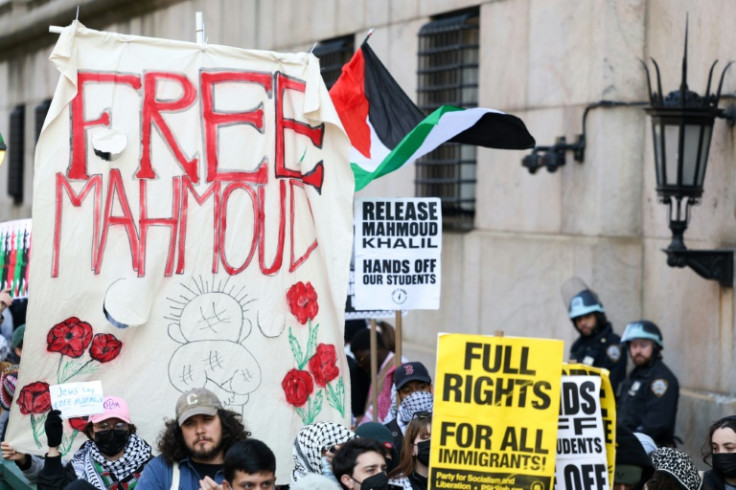
The Trump administration is using a rarely invoked Cold War-era immigration statute to justify the potential deportation of Mahmoud Khalil, a Palestinian graduate student which they claim poses a national security threat. The threat of Khalil's deportation is reigniting debate over the limits of free speech for immigrants and the federal government's broad authority over immigration policy.
The statute in question is the Immigration and Nationality Act of 1952, also known as the McCarran-Walter Act. Originally passed during the Cold War to combat communist influence, the law allows the Secretary of State to deport non-citizens whose presence is deemed to have "potentially serious adverse foreign policy consequences."
The law, foundational to U.S. immigration policy, has been amended hundreds of times over the years, as The Associated Press explains in a report. Though it initially eased some race-based quotas, it also institutionalized the use of ideology as grounds for exclusion or deportation, something now being revived by the Trump administration as part of a broader effort to clamp down on pro-Palestinian activism on campuses it deems anti-Semitic.
"Under the Immigration and Nationality Act the secretary of state has the right to revoke a green card or a visa for individuals who are adversarial to the foreign policy and national security interests of the U.S.," said White House Press Secretary Karoline Leavitt back in early March.
Most recently, Secretary of State Marco Rubio cited the law in a memo obtained by NBC News justifying the student's deportation. In it, Rubio stated that Khalil's continued presence in the U.S. would create a "hostile environment for Jewish students" and conflict with the government's foreign policy objectives. The memo, just over a page in length, did not include additional evidence beyond references to the student's political beliefs and protest activity.
"The foreign policy of the United States champions core American interests and American citizens and condoning anti-Semitic conduct and disruptive protests in the United States would severely undermine that significant foreign policy objective," added Rubio's memo.
Critics argue that the administration's use of the statute is an attempt to sidestep First Amendment protections, as Baher Azmy, the Khalil's attorney, explained to NBC News:
"What this case is really about is whether lawful permanent residents — and other immigrants to this country — can speak out about Israel's brutal attacks on Gaza and Palestine, or any other important matters of discussion in the national discourse, without fear of deportation for expressing beliefs that the First Amendment completely protects. Are U.S. citizens going to be next?"
The Department of Homeland Security recently created a task force to monitor the social media of foreign students for antisemitic activity. Secretary Rubio stated that more than 300 visas have been revoked and warned that students engaged in disruptive protest "will be sent home."
© 2025 Latin Times. All rights reserved. Do not reproduce without permission.






